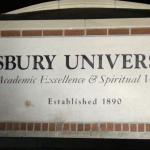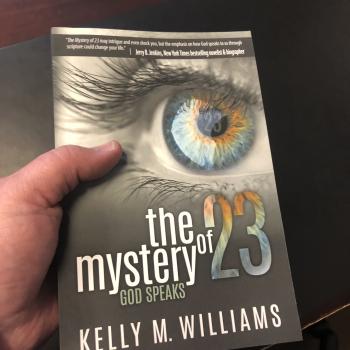IS LAUREN DAIGLE’S NEW SONG
“THANK GOD, I DO” A CHRISTIAN SONG?
Lauren Daigle is the most well-known, most popular, and most listened to Christian artist probably in the world today. She is the “Adele” of Christian music. The internet says Lauren Daigle is the second most famous Christian artist of our day, second to only Amy Grant. So it stands to reason that if Lauren is probably the most influential Christian singer of our day, it is fair to ask and evaluate whether her song, “Thank God I Do,” is Christian?
What does it take for a song to be “Christian?” A Christian song by nature is named after Jesus Christ. In the first century the nonbelievers referred to those who followed Jesus Christ as “Christians” or “little Christs.” A Christian song then reflects, comes from and follows who Jesus Christ is. Therefore the song needs to be “from” God “to” speak to our stories “for” Christ’s glory and “for” our good. Jesus tells us in John 4:23 that we who worship Him must worship in Spirit and in Truth. Meaning, the songs we sing must be in step with the Spirit both emotionally and relationally and in step with the Word of God which describes and explains the Truth of who Jesus Christ is.
So, does “Thank God, I Do” reflect these criteria? The song begins with…I’ve seen love come and I’ve seen love walk away…So many questions, will anybody stay? It’s been a hard year, so many nights in tears…All of the darkness, tryin’ to fight my fears…Alone…So long alone… I’d probably fall off the edge…I don’t know who I’d be if I didn’t know You.
On Daigle day on Sirius XM when the song released, Lauren said the song described her life during Covid. I never heard Lauren say during that interview that the song was directed to Jesus.
The song gives us a sense of what all of us went through in varying degrees during this lockdown season. We all felt the fear, the aloneness, the edge. And then the song says, “I don’t know who I’d be if I didn’t know You.” The capital “Y” seems to indicate a deity. In Christian genre, we capitalize the pronouns for God. So, it would seem to hint to us that the capital “Y” referenced Lauren’s deity.
The song continues… “I don’t know where I’d go if You ever let go. So keep me held in Your hands. I’ve started breathing, the weight is lifted here. With you it’s easy, my head is finally clear. There’s nothin’ missing when You are by my side. I took the long road, but now I realize I’m home. With You, I’m home. I don’t know who I’d be if I didn’t know You…I’d probably fall off the edge…You’re my safe place, my hideaway…You’re my anchor, my saving grace…You’re my constant, my steadiness…You’re my shelter, my oxygen…I don’t know who I’d be if I didn’t know You.
The language of this song is encouraging, hopeful, uplifting, and I would argue, helpful and somewhat Biblical. But the song is almost over and outside of the capital pronouns in the song (that by the way you can’t see when listening to it), this same language could be used to describe a human relationship. Especially since Lauren says in the song that the presence in the song is by her side. The presence is never living inside of her. It does sustain her with shelter and oxygen, even says the presence is her shelter and her oxygen. And then she gives a final affirmation of the presence by saying she doesn’t know where she would be if she didn’t “know” the presence.
Up to this point this could be any deity in the world. Yes, it uses some language from Scripture, but nowhere in the Bible is God called our oxygen. He is not oxygen. He is the breath of life which is the Spirit of God that lives inside of us, but God is not oxygen any more than he is carbon dioxide, that which is needed to sustain the life of trees and greenery. But there is the end of the song, let’s go there before we draw any conclusions about this song….
Lauren says, “I don’t know who I’d be if I didn’t know You. Thank God I do”
Ah, as best as I can tell outside of the capital pronouns, most interpret this song to be about God because the song says in this last line, “Thank God I do.”
Now we have to wrestle with whether the “You” and “Thank God I do” are statements directed toward the same entity. And let’s say initially “You” and “Thank God I do” is speaking directly to the same entity. Okay, then you can extrapolate at the end of this song that Lauren is talking about God through the whole song. Okay, let’s assume that is the case. But then the question is, “Which God?” Which deity? Which religion aligns with this language?
Nowhere in the Christian Bible is God referred to as our oxygen. However, pantheism teaches the doctrine that the universe conceived of as a whole is God and, conversely, that there is no God but the combined substance, forces, and laws that are manifested in the existing universe.
The God of the Bible is not just a force, a substance or set of laws, the God of the Holy Bible, the Christian God is seen to you and me in the person of Jesus. Jesus says, “If you have seen me, you have seen the Father.” (John 14:9) Jesus came to this earth and died for you and me. He was resurrected on the third day and ascended into heaven and sent the Holy Spirit to live inside of us and lead us into all Truth and to enable us to be witnesses of His saving grace in our lives. A few years ago, Pastor Steven Furtick gave a message about God as Energy, which seems to have some similar ambiguous language in his message as well.
I wrote about that here: https://www.patheos.com/blogs/pastorkelly/2021/07/pastor-steven-furtick-and-evangelical-heresy-is-almost-true-good-enough-for-the-gospel/
I do think Lauren captures these concepts in her song and I do believe she does enough to make many Christians today feel good about this song, but even Lauren herself has said she does not see herself as a “Christian artist” and this song is a far cry from her earlier music that was overtly Christian. I am okay saying this falls into the category of generically alluding to a God and is inspirational, catchy and encouraging, but I don’t understand the need to cloak, disguise, and even potentially intentionally hide who the song is about with generic references and even references that color outside the lines of what the Bible says about the Christian God of the Holy Bible.
I know the statement I am about to make will pigeon hole me and move me into a “Jesus Freak” category as a Christian. But that’s okay. If the song is Christian, then the language about God should be consistent to Scripture and why not give Jesus glory and thanks somewhere in the song if the song is solely about Him?
Now I didn’t write the song, I am simply critiquing the song as a pastor and student of Scripture and the song at best is about a deity, but which one is in doubt given the language, the ambiguity, and the misuse of the descriptors that would be consistent to who the Christian Bible says God is.
So you might say, “What’s the harm, who cares?” Our inability as pastors and Christian artists to rightly describe the God of the Christian Bible and the attempt to redefine the moral code described in the Bible is moving much of “Christianity” away from “Biblical Christianity.” I am hoping the “ambiguity” doesn’t have an agenda but more and more it seems the ambiguity is for the sake of redefining Christianity as a whole and moving it further and further away from Biblical Christianity both in morals and in the person of Jesus. Jesus speaks to that in end of the Bible. He says this in Revelation 22…
Revelation 22:16 “I, Jesus, have sent my angel to give you this message for the churches. I am both the source of David and the heir to his throne.[e] I am the bright morning star.”
17 The Spirit and the bride say, “Come.” Let anyone who hears this say, “Come.” Let anyone who is thirsty come. Let anyone who desires drink freely from the water of life. 18 And I solemnly declare to everyone who hears the words of prophecy written in this book: If anyone adds anything to what is written here, God will add to that person the plagues described in this book.19 And if anyone removes any of the words from this book of prophecy, God will remove that person’s share in the tree of life and in the holy city that are described in this book.
20 He who is the faithful witness to all these things says, “Yes, I am coming soon!” Amen! Come, Lord Jesus! 21 May the grace of the Lord Jesus be with God’s holy people.”
I don’t pretend to know Lauren’s motive or intent. I can’t know that. I can’t judge that. I do however have a responsibility as a follower of Jesus Christ and as a Pastor who leads others to and for Jesus, to discern, decipher, and teach others how to rightly divide God’s Word and be sure we are expressing, describing, and worshipping properly the God of the Christian Bible.
Yes, this is just ONE song. I get it. But it seems to me with each song, Lauren is moving further away from Biblical Christianity and the need to cloak and disguise and use language inconsistent to Scripture is troubling at best. It saddens me to see this drift in Christian music and in Lauren’s music specifically, since she represents Christian music in its current most popular state..
It would be my hope that Christian music would be more intent on moving toward intentionally aligning its words, theology, and practice to be more overtly aligned to the Christian Scriptures. Instead of trying to create an audience that is comfortable listening to its genre, even if it has no interest in the God it is supposed to be speaking of.
The nature of Christian music is supposed to be from God to us for His glory and for our good. This song seems to speak to our stories very clearly and effectively and brings generic good into our lives, but I don’t see how this song can be clearly deemed from God for His glory and in that sense I think this song fails us as a Christian song for Christians following Jesus. Where this will lead only time will tell, but I don’t get the Biblical sense it is a good direction.
Sincerely,
Pastor Kelly
















